Copyright © 2025 Homoeocare. All Rights Reserved.
Powered By
Kidney stones, also known as renal stones or renal calculi, are hard deposits made from minerals and salts that form in the kidneys. They vary in size, ranging from tiny grains of sand to large stones up to 20mm. If left untreated, kidney stones can cause severe pain and discomfort, and potentially lead to kidney damage. This article will explain what kidney stones are, their causes, types, and how homeopathy can provide a non-surgical solution to manage and prevent them.
Kidney stones form when minerals like calcium, oxalate, and uric acid become too concentrated in the urine, leading to crystallization. This process can be triggered by factors such as dehydration, dietary habits, and certain medical conditions. Over time, these crystals form larger stones, which can obstruct the urinary tract and cause significant pain.
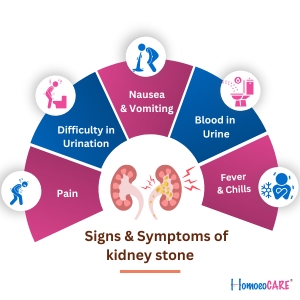
The symptoms of kidney stones often include:
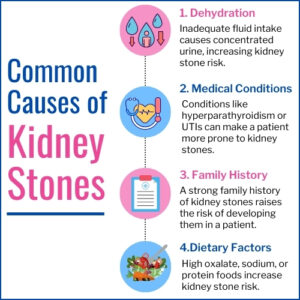
If kidney stones are left untreated, complications such as:
To reduce the risk of kidney stones:
Dietary calcium is crucial in managing kidney stones. Aim for 1,000-1,200 milligrams of calcium daily from low-oxalate foods such as dairy products and leafy vegetables (except spinach). Avoid calcium supplements unless advised by a healthcare provider.
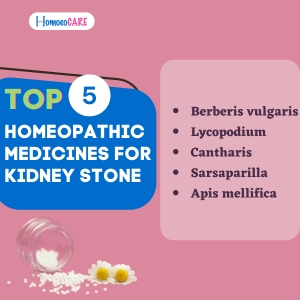
At HomoeoCARE, we offer a holistic, individualized approach to kidney stone treatment. Our homeopathic remedies focus on both flush-out (to remove existing stones) and prevention (to stop new stones from forming). Through tailored treatments, we aim to restore the balance of minerals in the body, addressing both the symptoms and underlying causes of kidney stones.
If you’re seeking effective, non-surgical alternatives for kidney stones, consult a qualified homeopathic doctor. At HomoeoCARE, we offer both in-person and online consultations for personalized kidney stone management.
By adopting homeopathic treatment, you can manage kidney stones safely and reduce the risk of recurrence, all while avoiding unnecessary surgery.
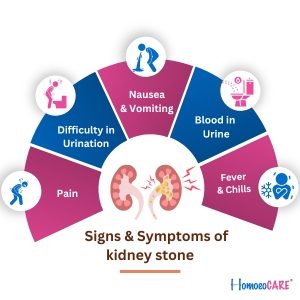
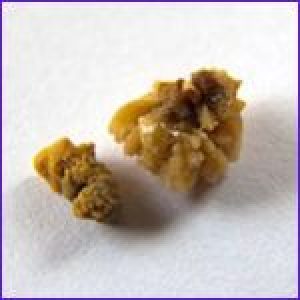
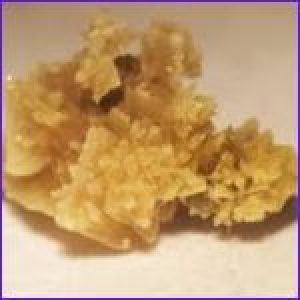
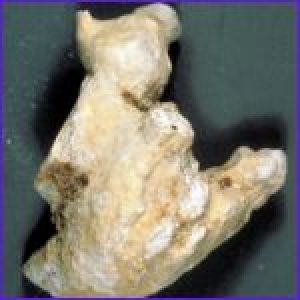
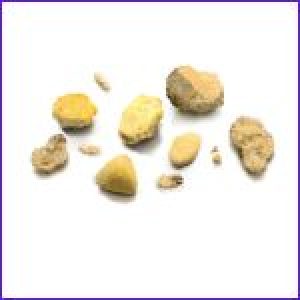
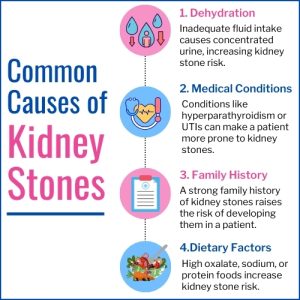
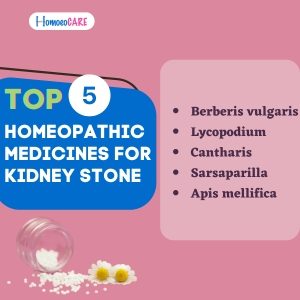
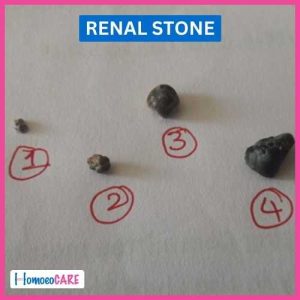
Kidney Stones can be dissolved, but they are thrown out of the body by contractions of the kidneys, ureter and bladder by homeopathic medicines. Homeopathic medicines can help to relieve the pains and also prevent the recurrence of Kidney Stones by targeting the underlying causes.
Surgery may be sometimes necessary for large or obstructive Kidney Stones in the ureter and where the size of the stone is more than the size of the ureter. However, we have cases where large stones are being broken into small stones by the contractions of the kidneys and then they are eliminated via the urinary tract.
The duration of homeopathic treatment for Kidney Stones usually takes 4 to 6 months. However, many patients experience relief from symptoms within a few weeks of starting treatment. And the main focus is on preventing the recurrence of the Kidney Stone formation.
HomoeoCARE, we’ve built a reputation as one of the top homeopathic clinics in Mumbai, offering solutions where traditional medicine hasn’t been able to help. Experience the healing power of homeopathy through our online homeopathy consultation with experienced online homeopathy doctors. But don’t just take our word for it check out our case studies to see how we’ve positively impacted the lives of so many individuals and families with our unique approach to healthcare.
Copyright © 2025 Homoeocare. All Rights Reserved.
Powered By